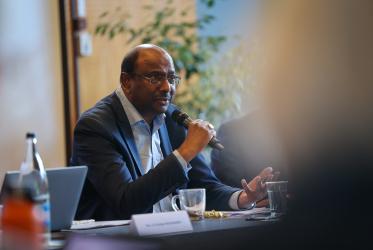His outlook is borne of observing daily life. Lebanon has, for an alarming number of people, become a country of misery, he said. “Those who took the rule when the war ended in 1990, were able to institutionalize a new rule of corruption,” he said. “The magic formula seems to be to make each region or ethnic group be afraid or be in competition with one another.”
Corruption has become so rife that it has altered even the country’s most historically reliable institutions, Abs said.
“Ninety percent of people’s money is stolen from their pockets by taxes which are illegal and inhumane,” he said. “Taxes in Lebanon are a means of theft.”
Many people are going hungry, he said. “Many people are taking products—be it car gasoline, be it medicine—and they are smuggling it to all around the world,” he said. “We are lacking lots of products.”
At this point, many people have electricity one hour a day or less, Abs noted. “This is a really abnormal and unbelievable life,” he said. “People with cars are waiting two to three hours to get gasoline.”
Daily life has reached such an abysmal state that Abs believes that many Lebanese are falling victim to a systemic self-inflicted genocide.
“Churches try to help the people as much as they can,” he said. "We went back to square one which is the square of food parcels—because 25% of Lebanese cannot eat, and you see them in the garbage containers in the streets searching for food.”
Churches are also trying to help people at the psychological level, he said, with trauma healing.
“The Middle East Council of Churches also focuses on income-generating work in the form of occupational training and development”, said Abs. “We are also launching a new program focusing on the healing of the social value system and the work to restore human dignity.”
Social structures are crumbling in Lebanon, Abs said. “When people are becoming poor or needy or jobless, they are losing their dignity,” he said. “Everybody knows that, once socio-economic structures crumble down, you have to alter your values and settle for behavior you rejected before, just for survival.”
Abs said he appreciates the support of the global ecumenical movement. “Peace is a product of justice,” he said. “Without peace there is no justice.”
When people don't have rights, they take to the streets, he said. "Law is the key for justice and justice is the key for peace,” he said. “In Lebanon, we don’t have it. But we are a country that is ready for justice.”








